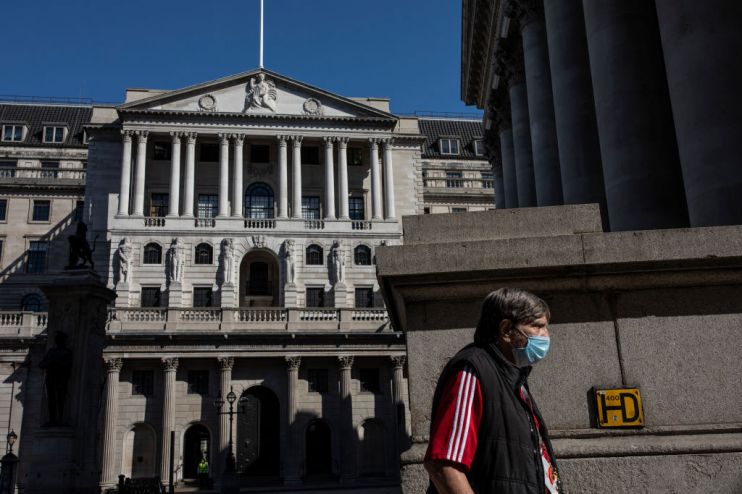‘Incomplete’ V-shaped economic recovery likely, says Bank policymaker

The UK economy is likely to go through an “interrupted or incomplete” V-shaped recovery as unemployment and social distancing weigh on growth, a Bank of England rate-setter has said.
BoE monetary policy committee (MPC) member Silvana Tenreyro said the UK economy’s recovery will depend on coronavirus cases being brought under control domestically and around the world.
Read more: UK economy grows by much less than expected after April crash
She said that if cases fall, her “central forecast is for GDP to follow an interrupted or incomplete ‘V-shaped’ trajectory, with the first quarterly step-up in the third quarter”.
Tenreyro’s speech to a London School of Economics (LSE) webinar came the day after weaker-than-expected May GDP figures were released. The economy grew just 1.8 per cent in May after crashing 20.3 per cent in April. Analysts had expected 5.5 per cent growth.
But the BoE policymaker today said that an imperfect V-shaped recovery would only likely take hold from July onwards.
In a V-shaped recovery, economic activity would quickly rebound almost as sharply as it dropped. Tenreyro’s “incomplete” recovery appears similar to the UK budget watchdog’s “central scenario”, which was released yesterday. Some analysts have said it would look like a “square-root sign” on a graph.
In the Office for Budget Responsibility’s (OBR) scenario, the UK economy would recover its pre-coronavirus size at the end of 2022. UK GDP would drop 12.4 per cent this year and grow 8.7 per cent the next.
Tenreyro, who is a professor in economics at the LSE, said there were already signs of a “sharp recovery” in some consumer spending.
She said this should continue “in purchases that were restricted only because of mandated business closures”.
Unemployment and social distancing threaten UK economy
However, Tenreyro said there were two big factors likely to drag on the UK economy’s recovery: unemployment and social distancing.
She said that “possible feedback from higher unemployment” could lead to lower demand. This would be particularly damaging for the UK economy, which relies on consumer spending.
Economists fear millions could lose their jobs as the government’s job retention scheme is wound down. The OBR’s central scenario said 15 per cent of the more than 9m on the furlough scheme to become unemployed.
Tenreyro added that “voluntary or mandated social distancing” would hit both demand and supply if it continued for too long.
Therefore a key determinant of the recovery will be whether the UK can get coronavirus cases down so that people feel safe going out and spending, the BoE policymaker said.
“On balance, these uncertainties suggest to me considerable downside risks for demand relative to supply,” she said.
“The risk of a second wave domestically or abroad brings additional uncertainty into the outlook.”